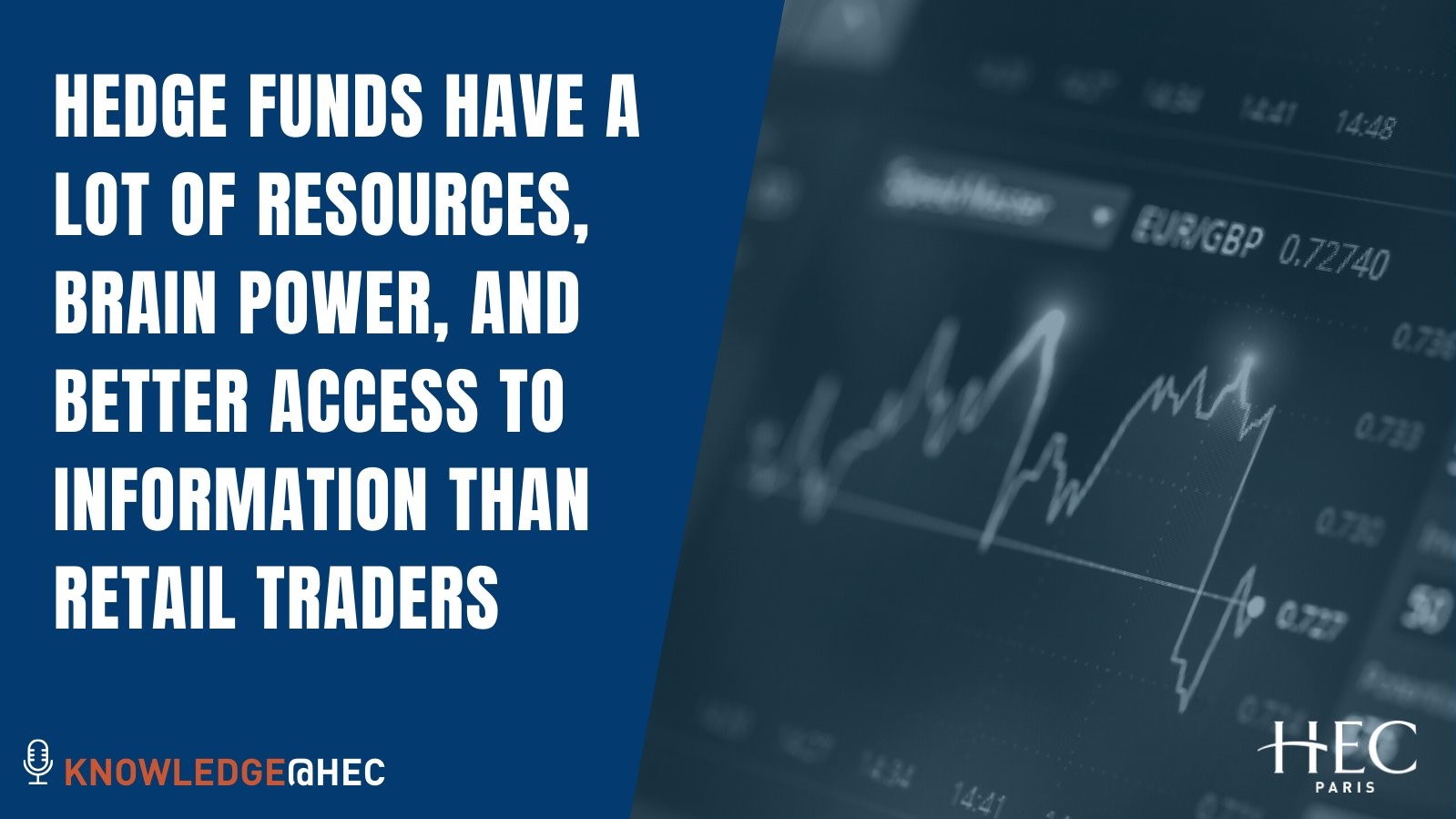Listen to the podcast:
What are the mechanics behind this affair with GameStop?
The story has often been presented as amateur traders taking a revenge on Wall Street hedge funds. This view has some superficial element of truth, but I believe that it is fundamentally misleading.
First, let’s explain the part where amateur traders take a revenge on hedge funds. GameStop is a brick-and-mortar video game retailer, which hedge funds deemed was over-valued. A number of hedge funds started to short-sell GameStop. To short-sell a stock, hedge funds borrow the stock, sell it in the market, and expect to buy it back later at a lower price, and therefore make a profit.
Now come amateur traders on Robinhood. Robinhood is an online trading app. Amateur traders on Robinhood coordinated an attack on the short-sellers. They bought massively GameStop’s stocks to push up the price. This generates losses for short-sellers and leads short-sellers to close their short positions, which means buying the stock. By buying the stock, the short-sellers not only lost money, they also further increased the price and contributed to increasing their own losses.
On this part, it is true that amateur traders played a clever trick to the short sellers. This trick is called a “short squeeze”.
It is also true that a few amateur traders, those who started the short squeeze by buying GameStop when the price was low and sold it when it was high, made money.
But many individual traders also lost money. In particular those who bought when the stock price was already very high, thinking they could make quick and easy money at the expense of hedge funds. When the price eventually crashed, because every bubble eventually crashes, people who bought at the peak of the stock price lost a lot of money. Learn more on my blog post, What is happening with GameStop.
So what lesson can be learned from this story?
The main lesson is that it is naïve to believe that amateur traders can beat hedge funds at their own game. Hedge funds have a lot of resources and brain power, and better access to information than retail traders. Retail traders really stand no chance.
The main lesson is that it is naïve to believe that amateur traders can beat hedge funds at their own game.
My colleague at HEC Paris, Finance Professor Jean-Noël Barrot, studied the performance of individual traders in France. He shows that they lose money on average. He also shows that more experienced traders perform a little bit better, but even they lose money, they just lose less money than the less experienced traders.
In fact, the very business model of trading apps like Robinhood relies on the fact that amateur traders lose money in the stock market. Robinhood does not charge any fee to its customers. It makes money by selling to hedge funds the right to trade with its customers. This practice is called “payment for order flow”.
The very business model of trading apps like Robinhood relies on the fact that amateur traders lose money in the stock market.
The fact that payment for order flow is a profitable business is very telling: why are hedge funds willing to pay to be allowed to trade with individual traders?
The answer is obvious: it is because individual traders always lose at the expense of hedge funds.
Now, don’t get me wrong. Investing in the stock market is a good idea for long-term investment. For instance, it is a good idea to invest a fraction of retirement savings in the stock market, and it is good practice to buy a diversified portfolio such as a low cost, broad-market Exchange Traded Fund (ETF).
Investing in the stock market is a good idea for long-term investment.
However, day trading and stock picking is a money-losing activity, unless you think you can outsmart other traders. But you have to keep in mind two things. First, not everyone is smarter than average, and second, even fewer people are smarter than hedge funds when it comes to trading.









